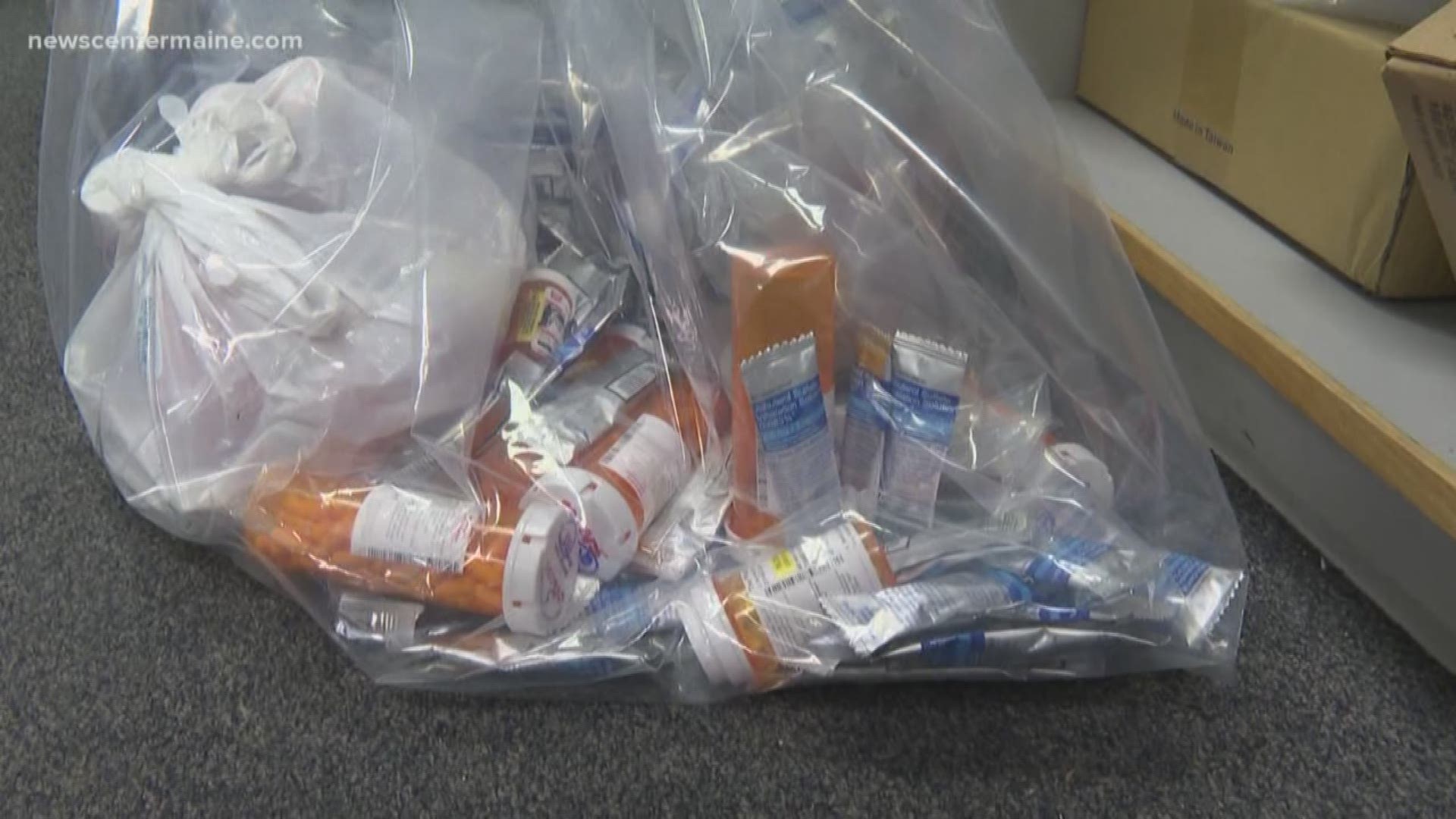PORTLAND, Maine — Google is partnering with federal and state agencies, as well as pharmacies, to identify permanent drop-off locations for unused or unwanted medications to help combat the opioid crisis.
The DEA, HHS, CVS, Walgreens, and state governments will work with Google Maps to show these locations through an easy search of terms such as "drug drop off near me" or "medication disposal near me."
Google Maps will then display permanent disposal locations at their local pharmacy, hospital, or government building so they can quickly and safely discard unneeded medication.
"We've noticed a huge search increase for medication disposal near me. In fact, searches for those terms peaked last month in January," said Riva Sciuto, public affairs manager for Google. "That was our goal: to make this accessible to more people in more places."
Sciuto said Google reported 50,000 search queries related to the opioid crisis every day.
During Maine's most recent drug take back day in October 2018, Maine law enforcement officers collected 27,157 pounds of medication. Maine ranked 11th highest in the nation for medication turned in on that day.
"This is a small amount. Normally, I clean it out once a week and it's right to the top of the bin," said Detective Brian Ackerman after he emptied the drop-off bin in the lobby of the Cumberland County Jail on Wednesday. "Sometimes I have to empty it twice a week."
Maine has ranked number one in pounds of drugs turned in per capita every single drug takeback day.
"It's not a great statistic to have. Amounts never go down," said Sheriff Kevin Joyce.
In 2017, the Department of Health and Human Services (HHS) declared the opioid crisis a public health emergency, with over 130 Americans dying every day from opioid-related drug overdoses.
"So many people, especially young people, get introduced to potentially addictive medications out of medicine cabinets," said Dr. Leslie Clark, the executive director of the Portland Recovery Community Center. "Getting unused, unneeded prescriptions turned back in so they're not out there where people are vulnerable to becoming addicted is so important."
Clark hopes eventually, all of the state's available recovery resources would also be easily searchable.

